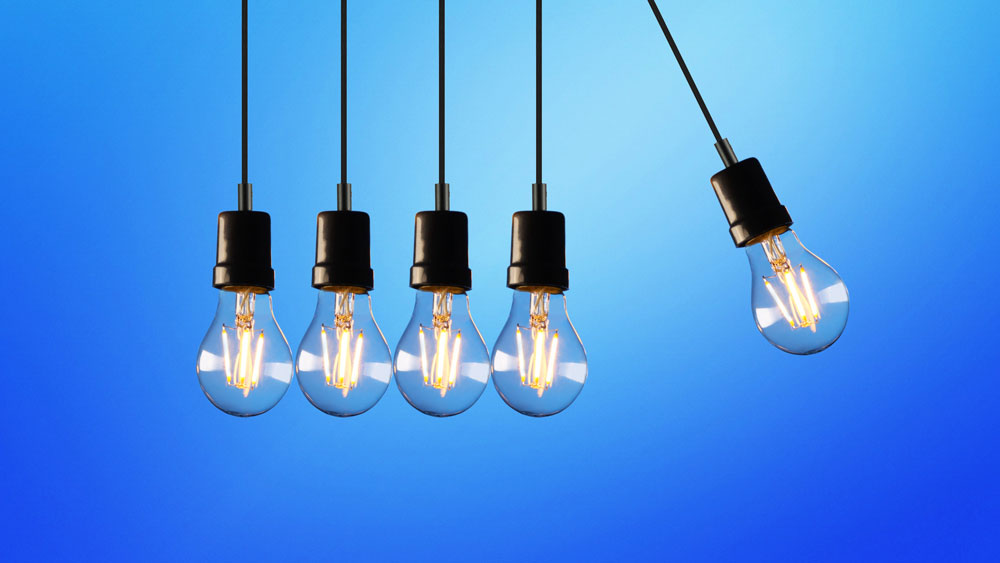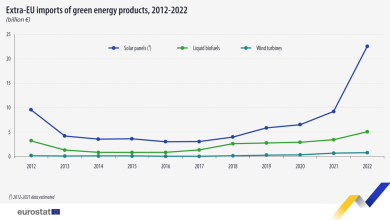Future of work for energy leaders in a sustainable future
Who builds the amazing future we want to live in?
We somehow believe that future is inherent better and progress is all guaranteed, but we can see throughout the history that what comes next is not always better. The question is what we do today and how in order to create a better world, what are the things meaningful and exciting enough for our generation in order to be inspired to pursue.
This is the most amazing time to be alive, the speed and opportunities that lie in front of us are just there for us to take. All throughout the history there has never been a more peaceful, healthier and comfortable period than the one we are living now. Today we have an incredible power we can use to shape the world for the better and this is where energy leaders could and should play a vital role, pursuing their own dreams while also having a positive impact in the society.
Energy consumption and production, with climate change and jobs landscape are 3 of the main challenges ahead.
Our lives came to depend on electrical energy. Besides Facebook, sending a message or giving a call, we depend on energy for food and water supply, health, trade and much more. The world will need to produce 70% more food in 2050 than it did in 2006 in order to feed the growing population on Earth. But Energy is also the main contributor to green gases effect and climate change. Furthermore, due to digitalisation, automation, AI and cleaner energy production, we are going to see a massive disruption in how energy job landscape will dramatically change in the next 30 years.
Until 2050, which is not that far away, Earth population will increase with 3 billion more people, consuming more energy, reaching 30 billion IoT device in 2020 and 76 billion until 2025. The communications industry could use 20% of all the world’s electricity by 2025 while Bitcoin and Servers energy consumption will rise significative.
All this will have a massive impact on climate change and along with the digitalisation and automation it will also drastically affect the job landscape. But the problem is not mainly generated by the increase in population, even if the population will stay as today, progress, technology and how we came to be as a civilisation is generating the same issues. Increase in population is an amplifier, it amplifies the problems, but it could also amplify solutions. But how can we look at energy consumption, climate change and jobs landscape from a holistic point of view?
Energy consumption will increase by 61% in the next 30 years
The World Energy Council estimates that total primary energy supply (equal to consumption) will increase globally from 546 EJ (152 PWh) in 2010 to 879 EJ (144 PWh) at the current peace of evolution, this corresponds to 61% increase. In 2017 bitcoins used as much amount of electricity it takes to power a country like Switzerland in one year and it keeps growing. Virtual Reality and Artificial Intelligence will need more power and will consume even more energy.
Fossil fuels helped built today’s world and powered human progress across centuries and industries, but it also generated a lot of pollution and other negative consequences. We have to find ways to transit to greener alternative of fuelling progress from now on.
Our generation is expected to live more than 100 years so it makes more sense to look on the long-term trends even just from individual perspective, to look beyond the next 30 years. Humans are a Type 0 civilisation on the Kardashev scale. Michio Kaku, an American theoretical physicist and futurist, predicts we will approach a Type 1 by 2100. We will capture all the solar energy that reaches Earth increasing our energy supply by a factor of 100-billion. We will have harnessed nanotechnology and warp drive propulsion and will be a civilization of this world and off this world, but this is the future that needs being built.
Life on Earth is possible due to a long period of climate equilibrium. Climate Change is already affecting our lives and it gets worse.
Just as a good pie needs not too much heat but also not too little to cook properly, this what life as we know it and humans need, a proper amount of energy and equilibrium. Our planet is not too far and not too close to Sun to get a good amount of energy, this is called Goldilocks Zone (yes, after the cartoons). Earth average temperature is 160C thanks to GHG emissions and atmosphere. Without GHG emissions the temperature will be -180C and life as we know it wouldn’t be possible. Therefore, GHG are not bad, too much GHG are both bad and dangerous and this is what happened in the last 100 years. Earth is warming very hard and expensive to solve the problem we are creating and we do not even know today if it is possible. For example, we can fix deforestation and plants trees, but we do not know how to fix ice caps melting or oceans warming, we know how to cool interior spaces and with lots of energy, we don’t know how to cool the rest.
We have moved on beyond unsustainable energy consumption. Climate change impacted also, 5.5 million people died in 2017 due to air pollution, storms are more dangerous than ever in modern times. About a third of Europe is covered by forest. Last year, the burnt area in Portugal, Spain and Italy alone was almost double the half a million hectares that wildfires damaged in 2010 and things are getting worse.
Experts are predicting that climate change ‘will create world’s biggest refugee crisis’, devastating climate change could lead to 1 million migrants a year entering EU by 2100. Every year since 2008, an average of 26.4 million persons around the world have been forcibly displaced by floods, windstorms, earthquakes or droughts.
Climate change is affecting economy. Sea-level rise, floods, droughts, wildfires, and extreme storms require extensive repair of essential infrastructure such as homes, roads, bridges, railroad tracks, airport runways, power lines, dams, levees, and seawalls. Farmers will need to spend more money on protection and irrigation.
Climate change is not an option, it is a responsibility and today we kind of ignore it because we are too busy doing nothing. Climate change, pollutions and lots of problems could be easily be solved with small steps made on a large scale, but this is not simple and it needs our joint effort.
In the following decades there will be lots of shifts on jobs due to automation, digitalisation and Artificial Intelligence.
We are now living the 4th Industrial Revolution, that had profound implications on how we live, work and relate, changed power spheres. By 2019, computers will have an emotional intelligence comparable to humans, making them indistinguishable from us on essential levels of being. By 2045, computers will be one billion times more powerful than the human brain. These are just 2 of the amazing prediction futurist engineer at Google, Ray Kurzweil. Not to add the fact that another world-famous futurologist, Ian Pearson, predicts humans will be able to cheat death by the year 2050.
Technology will transform products and organisations, the way we design, make and build, use and maintain. Furthermore, it will change us, how we consume, produce or feel. This is the fastest change ever happened.
Automation, Digitalisation and AI will lift productivity and economic growth, but millions of people worldwide may need to switch occupations or upgrade skills. In the next 25 years around 47% of today’s jobs will disappear according to Oxford, anything that is routine or repetitive will be automated. Furthermore, Dell tells us that 85% of jobs that will exist in 2030 haven’t been invented yet.
We have to change the way we understand and teach education. Today education should focus on creating skills like independent thinking, creativity and team work, on understanding of feelings, empathy and team building.
Lots of newly invented jobs will be related to Energy and Cities
In this sustainability race to save Earth, to find quick and innovative solutions to problems, one of the most fundamental shifts I believe will be generated by the model ‘Product as a service’ along with Building communities, Grassroots movements and Carbon taxation. All this creating numerous and different jobs. We need to create public policies on facts and predictions based on data, not decide on perception and few incomplete info.
The World Energy Council trilemma is still unsolved, Energy Security, Environmental Sustainability, Energy Equity are the 3 pillars we need people to solve it.
There are new technologies that are emerging that will create millions of new jobs, and old ones dying destroying millions of other jobs. Better focus on the growing industries and technologies and prepare yourself to shift jobs as the average life expectancy is constantly rising. We will live longer and we will have more than one or two jobs. This is important for everyone, the young and the restless in mind and spirit, independent of biological age.
We need more education on energy, to get people more interested in how and where energy comes from. There’s no magic, nor rocket science, but as we need collective actions, we need everyone to understand energy and for that we have to make it easy to understand.
As a conclusion, I believe that trying to understand how the worlds is run today and where is heading, to learn as much and as vast as we can in space in time, with an open and critical mind, can provide all the answers we need.
While is excitant to fantasise about the future, creating it needs actions, sacrifices and will on the long run. When talking about energy there is no silver bullet, but hard work and civic involvement can deliver extraordinary change. We need to go beyond just creating strategies and start implementing them, because there’s a lot to learn from test and trial. We need to start creating roadmaps, education plans, career plans. World is a big puzzle waiting to be solved.
Text by: Mihai Toader Pasti, Chairman FEL Romania







